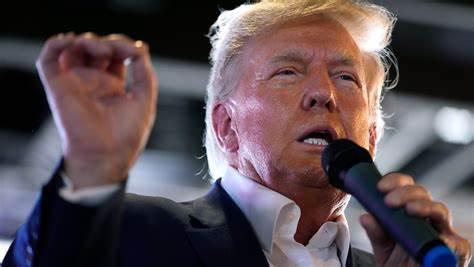Two weeks before the start of the US Republican Party primaries, on January 15 in Iowa, former President Donald Trump leads the field of candidates for the White House, but he also faces legal action.
In the latest polls, Trump holds a significant advantage over all other candidates, with more than 60% voting intentions compared to just over 10% for Ron DeSantis, the second-place governor of Florida, but each is increasingly threatening. In that place is former ambassador Nikki Haley.
But all these calculations could be invalidated if Trump is convicted in one of the four legal cases in which he is involved, as numerous polls reveal that the former president may lose his popularity if the American justice system proves the commission of serious crimes, such as when he is accused of inciting the storming of the Capitol building, on January 6. /January 2021, by his supporters who sought to prevent the certification of the victory of current Democratic President Joe Biden.
The Republican primary is a long and complex political process, requiring candidates running for the White House (in the presidential election scheduled for November 5, 2024) to be subject to selection in all 50 states and even the District of Columbia (where the capital is) and in five territories, Between January and June.
The first election will take place on January 15 in the important state of Iowa, where all the major candidates are already campaigning, realizing the importance of securing a position in the “ranking” of the most chosen.
However, most analysts believe that nothing will likely be decided until March 5 (“Super Tuesday”) – when the choice of the Republican nominee will be decided in 16 states, including the highly populated and politically important California and Texas. .
But Super Tuesday could also be crucial because the day before, March 5, could be the start date of the trial that will assess Trump's alleged responsibility for the invasion of the Capitol, and whose sessions could overlap with the electoral outcome for the Republican Party. .
Moreover, the former president's lawyers have already asked the Supreme Court to evaluate whether Trump would not enjoy “absolute immunity” for actions he took while he was still president, in an attempt, at the very least, to postpone the start of this trial.
But there is another open question in these primaries, after the Colorado Supreme Court ruled that Trump could not qualify to run for president (due to his alleged involvement in the storming of the Capitol), forcing the Republican Party to put its internal candidacy at that. The mandate was suspended until the matter was resolved after analyzing the appeal to the Federal Supreme Court.
This week, a Maine state court also made the same decision, highlighting the need for the federal Supreme Court to rule on the matter, which should happen in the next two months, with the start of the Republican primary.
The topic was also discussed by the rest of the Republican candidates, who were divided between those who seek not to antagonize the former president and who share his narrative that he is the victim of a political cabal organized by the White House (in the case of businessman Vivek Ramaswamy) and those who distance themselves from Trump and question his legitimacy for re-election (as (This is the case with former New Jersey Governor Chris Christie).
By the beginning of the summer, Republicans will have to choose 2,467 delegates to the convention, using a complex mathematical model that includes the percentage of votes in each state and the number of districts won by each candidate.
At this conference, the chosen candidate will have his first official appearance as a contender for the White House, but analysts believe that if Donald Trump resists the legal problems surrounding him, his victory will be practically guaranteed as early as March, allowing him to do so. To begin her national campaign at that time.
In this case, Trump would be the first former North American president to run again for that position after leaving the White House for a single term since Herbert Hoover, in 1940; He would also be the first Republican to be nominated by the party three non-consecutive times since Richard Nixon in 1973; The first Republican to be chosen as a nominee three consecutive times.

“Hardcore alcohol maven. Hipster-friendly analyst. Introvert. Devoted social media advocate.”

